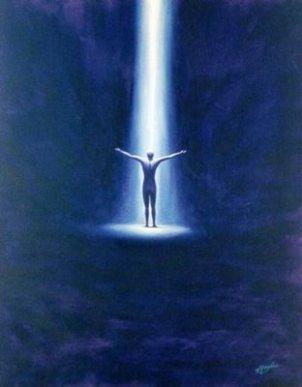A donkey laden with books is neither an intellectual nor a wise being.
Saadi of Shiraz. Sufi teacher. 13th century.
Most of what we as humans consider true is in fact our personal opinion.
There is no good or bad about that. It simply is. This can be observed in our own life.
Consider an object (any object). Look at it. How do you know what this object is? Most likely you will call it a name, a description that, to you, closest resemble what the object is (in your opinion).
Can you see that the terms ‘call it a name’, ‘description’ and ‘resemble’ are not the actual object?
Or as Zen Buddhism puts it: The finger that points to the moon, is not the moon.
What actually happens is: An object, according to modern science, is a collection of electromagnetic fields called atoms. In other words, what we perceive as ‘stuff’ is in reality fields of energy that reflect light.
A very small amount of this reflected light shines through our eyes. Inside the eyes the light hits some receptors. The receptors create an electrical signal which is sent to the brain. The brain sorts these electrical signals and if (and only if!) the brain can ‘make sense’ of the signal it will translate them into an imagined image and a recognition. Ahhh… I see!
From this it is fairly easy to understand that the connection between what the object really is and what we perceive it to be, is a bit like the connection between a cow eating grain… and a cheese sandwich.
So we as humans do not actually perceive the world as it is.
We only use enough of our senses to get by. For the rest… we make it up!
An example of how this has been used is in the production of film. A film is a collection of still pictures shown at such a speed that the brain stops seeing them as still pictures, but instead imagines that the objects on the screen are moving. What happens is that the brain has to make sense of the signals that it perceives. If there are gaps in the understanding, then the brain fills out the gaps using imagination so that the separate bits are seen as hanging together.
If we start looking, really looking at the details of our lives we end up with a disconcerting realisation. The world as we understand it is not ‘real’. It is continuously made up by the brain. Or as some would put it. The world is an illusion.
Realising that the world is an illusion doesn’t seem to make it go away though. In fact, the world appears to be quite persistent. But, the problem does not lie in the illusion. The problem lies in the believer of the illusion. Now who is that then? That is ‘me’ of course you silly. All right then… the problem lies with the ‘me’.
Who is ‘me’?
Me is the identification of ourselves as an individual, separate from all the other stuff and beings. And even though we believe that this ‘me’ is real, I am sorry to say that it is not. ‘Me’ only exist as an interaction between the self and other. And if the ‘other’ is an illusion, then there is no real interaction and no real ‘me’.
But, you would probably say, I am having this experience, I have to exist… and you are right (to a point). The ‘me’ which is involved in the world is part of the world. The ‘I’ which experiences the world is not of the world. So, in order to be able to say “I Am the Truth….” you have to be in the world, but not of the world. (Sounds familiar?)
So, if ‘I’ is real, or at least ‘more real’ than the me and the world, why don’t we study the ‘I’?
Bingo!!!
The persistent focus on ‘I’ which is Universal Consciousness, brings about Truth. That does not mean that the thinker (part of the me) should start making up theories about this Consciousness. It means that I can be allowed to be aware of everything and no-thing.
And as ‘I’ allows itself to be the center from which we are aware, reality starts to unfold itself as truth … and not as opinion.

